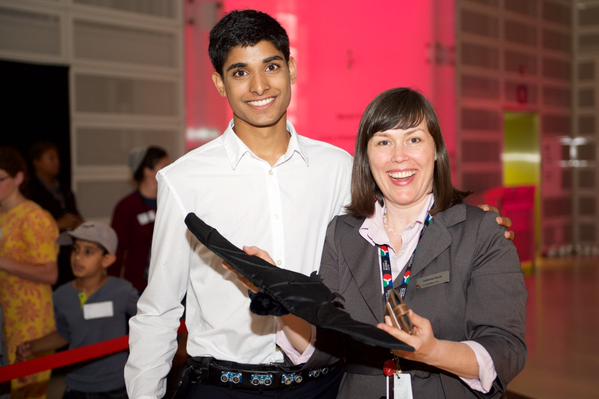High school student from Canada invents revolutionary iAid gadget for blind people
The teen hopes his creation will allow the sight-impaired, from across the word, to move around easier

An 18-year-old who just finished high school has developed a revolutionary gadget which allows blind people to be more mobile – after coming up with the idea when he was 12.
Alex Deans, from Ontario in Canada, began creating the device after becoming curious while helping a blind woman cross the street one day.
“She told me that all existing devices only let users see in one direction so they can’t know what’s going on around them,” he told GOOD magazine, after seeing she only had a cane and guide dog – two things that are hard to come by – with her.
The device, known as iAid, uses GPS and ultrasonic technology to help visually-impaired people get around safely.
The belt-like gadget comes with a joy stick and works by releasing sound waves that bounce-off objects in the user’s path to show how close things are to them. The iAid’s workings have been compared to the combination of a whale’s sonar and the technology used in cars to alert drivers when they’re close to reversing into something.
Whereas canes tell users what’s directly in front of them, they don’t help them figure out where they are in relation their destination and objects that are farther away, explained the teen.
Describing how his creating started as a hobby, he added: He added: “I didn’t think anything would come from it. It took me two to three years just to get the programming and coding knowledge.”
The teen’s invention has been attracting attention and it won the 2015 Weston Youth Innovation Award in May for which Alex was awarded $2,000 at a ceremony at the Ontario Science Centre last month.
Alex is now working closely with the team at the science to centre an exhibition for hisinvention. He was also given the opportunity to present at We Day – stadium-sized events where speakers lecture about global issues across the US, Canada, and the UK.
Alex will be starting at Montreal’s McGill University in the autumn, but hopes the iAid will be approved for US and Canadian rights so that, one day, the device will be available for those who really need it across the world.
The valedictorian hopes the iAid will sell for between $50-$70 (£32-£45) if he can lower the costs of materials with the hope that the sight-impaired can, one day, move around more freely.
Subscribe to Independent Premium to bookmark this article
Want to bookmark your favourite articles and stories to read or reference later? Start your Independent Premium subscription today.

Join our commenting forum
Join thought-provoking conversations, follow other Independent readers and see their replies